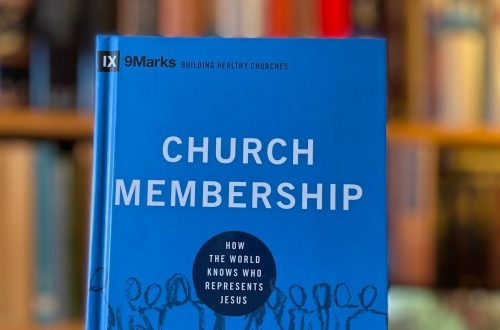 Carl Trueman is perplexed at Evangelical fascination with Lent. He writes:
Carl Trueman is perplexed at Evangelical fascination with Lent. He writes:
I can understand Anglicans observing Lent. Hey, I can even approve of them doing so when I am in an exceptionally good mood or have just awoken from a deep sleep and am still a little disoriented. It is part of their history. It connects to their formal liturgical history. All denominations and Christian traditions involve elements that are strictly speaking unbiblical but which shape their historic identity. For Anglicans, the liturgical calendar is just such a thing. These reasons are not compelling in a way that would make the calendar normative for all Christians, yet I can still see how they make sense to an Anglican. But just as celebrating July the Fourth makes sense for Americans but not for the English, the Chinese or the Lapps, so Ash Wednesday and Lent really make no sense to those who are Presbyterians, Baptists, or free church evangelicals.
What perplexes me is the need for people from these other groups to observe Ash Wednesday and Lent. My commitment to Christian liberty means that I certainly would not regard it as sinful in itself for them to do so; but that same commitment also means that I object most strongly to anybody trying to argue that it should be a normative practice for Christians, to impose it on their congregations, or to claim that it confers benefits unavailable elsewhere.
You can read the rest here.
(HT: Hershel York)




10 Comments
Elke S. (@speli)
As a former Catholic who pushed back hard against Catholic observances when I became a believer, I understand his sentiment. I have to admit though that Lent and the church calendar have taken on a new meaning to me as these time markers point me to focusing on Christ. So I consider this a good exercise, not a mandatory exercise.
Ian Shaw
As someone who was taken to a RC church as a child, as my father was RC until swithching to Lutheranism when I became a teenager, I get why the RC church does it. Though as someone who attends a SBC church now, my participation in Lent now really only consists of hitting up the phenomenal fish fry’s on Fridays in my area.
Thomas Soyars
Seems like we should just be glad that people are taking the time and energy to hopefully spend some contemplative time with God.I guess Carl probably wouldn’t approve of the way I pray or the type of service I go to.
It’s not the form of worship it’s the act of worship that is important (as long as it is scriptural.) Does he really mean to complain that people are hopefully spending 40 days in contemplation? It’s nice that he doesn’t consider it sinful, although he does manage to imply that he feels it is. But who is he to say that congregations should not consider it normative?
Christiane Smith
IF the lenten process is meaningful to people who are not Catholic or Orthodox, and IF they can tie it to sacred Scripture;
THEN, it can be a good journey to undertake as a progression towards Calvary and the Resurrection ‘in memory of Him’ who is the Lord of Life.
Mandatory? well, Our Lord Himself once asked the Disciples to wait with Him while He prayed prior to the time of Crucifixion,
but to His sadness, they fell asleep instead.
To spend time with Christ in prayer during the days of Lent is an act of great love for Him, and of deep appreciation for what He did for us . . . if someone needs ‘mandatory’ to ‘make’ them take this journey, then likely they will go through the motions, and perhaps through God’s grace, somewhere along that path, their hearts will be pierced with repentance through the Paschal Mysteries as they become convicted of their own part in Our Lord’s suffering, and their hearts will be renewed as they kneel to honor the Risen Lord.
“”The Lord God formed man out of the clay of the ground and blew into his nostrils the breath of life, and so man became a living being.” On Ash Wednesday, we hear echoes of this in the words, “Remember you are dust and to dust you shall return.”
Today we are reminded that our lives come from God. Our very existence comes from God. We are owed nothing. We have nothing coming to us. Every breath we take is a reminder of our dependency upon God; every beat of our heart is a reminder that God is the Lord.”
(R. Barron, a Lenten reflection)
Nathan Stuller
Reading Dr. Trueman’s article, it seemed geared more towards pastors and professors than to the lay Christian. Perhaps I can be a little more direct than he was.
As I meet Christians from other churches talking about Lent, or hear it discussed on Christian radio, the conversation always revolves around one thing: giving something up for Lent. Spending time in the contemplation of Christ is never mentioned. Regardless, one of two things is happening, and both are bad.
Either something sinful is being given up, in which case it should never be taken up again. (I had a friend in high school who gave up a certain sexual sin for Lent and spent the entire 40 days talking about how much he was looking forward to resuming it the day after Easter.) That isn’t repentance, and it isn’t Christian.
Or something is given up which God has never commanded us to give up. People give up soda or chocolate or some other insignificant thing. “These have indeed an appearance of wisdom in promoting self-made religion and asceticism and severity to the body, but they are of no value in stopping the indulgence of the flesh.” Colossians 2:23 Giving up soda for 40 days is not sanctifying, and it is not Christian.
If it is simply more time spent in prayer or considering the work of Christ, then why stop at Easter? Is not the greatest commandment to love God with all of our heart, soul, mind, and strength? The Word of Christ should dwell in us richly. Colossians 3:16. That should be our practice 365 days of the year, not merely 40 days for lent.
In brief: anything that is done during Lent that is good should be the practice of Christians all year long. Anything that is done during Lent that is not should never be done at all.
Thomas Soyars
While I agree with what you are saying I don’t get that impression from his article. He says “What perplexes me is the need for people from these other groups to observe Ash Wednesday and Lent. My commitment to Christian liberty means that I certainly would not regard it as sinful in itself for them to do so; but that same commitment also means that I object most strongly to anybody trying to argue that it should be a normative practice for Christians, to impose it on their congregations, or to claim that it confers benefits unavailable elsewhere” The implication is that it might be sinful and that he can’t advocate it as a normative practice. Why not? Anyone that gives up a sinful practice only to take it up again is not abiding in the spirit of Lent. The same may go for giving up chocolate or coffee or some other minor pleasure. If those those things are a snare then giving them up is a good thing. If you take the money you would have spent on those things and donate it to a good cause it is a good thing.
There is nothing wrong with the practice of Lent and I would say that anything that helps people to focus on their walk and relationship with God is a good thing. Not everyone is a strong christian and some need a little something extra. If 40 days turns into a lifelong habit then great. If not, at least they focused a little more for 40 days and if they do the same thing next year and then year after then you begin to reinforce the behavior and faith.
We can all find something in any denomination that we find strange, but to write an article saying that anyone that practices Lenten tradition is suffering from a poverty of liturgical tradition or carnality is silly, unloving and divisive.
Chris Ryan
Just yesterday out of the blue someone asked me what I was giving up. After the perplexed look on my face she then asked if I was Christian. I was amused at the face she made when I said, “Yes, but I don’t give up anything for Lent.” Philosophically I agree with Nathan. Indeed when I turned the question on her, the woman said she was giving up cursing and a bad attitude! Well, amen, and let’s hope she gives it up for the rest of the year as well! 🙂
In general, tho, I’m a live and let live guy & if this helps someone in their spiritual journey I don’t see any harm. I myself have been known to make the sign of the cross sometimes to help focus my mind when I’m praying, normally when I’m also doing some other activity (like running in the morning, or driving home from work in the evening). Its not based on either evangelical tradition or Scriptural support, but the technique helps me focus on prayer when I’m unavoidably “multitasking”…So I don’t see a reason to get all hard & doctrinal on this.
Christiane Smith
Hi CHRIS, it’s not just Catholics who make the sign of the Cross . . .
the Anglicans sometimes make the sign of the Cross in their worship
. . . I do something when praying that I did as a child . . . when I come to the word ‘Jesus’, I still bow my head
It is popular among some to say ‘it’s not necessary’ when referencing the sign of the Cross or kneeling or bowing one’s head,
but the truth is that ‘being necessary’ was never really the point at all.
St. Paul bore the markings of persecution on his own body because he had followed Christ. He was not ashamed of these markings because of the reason that he had received them. His scars stood silent witness to his faith.
A public affirmation of Christian belief can be shown in a ‘sign’ or in an act of compassionate caring in His Name;
it doesn’t always have to be the spoken word, because if we are to consistently be the followers of Christ, we may still witness to Him even in the midst of silence.
Christiane Smith
The Lenten journey of a Christian is marked by quiet reflections on the paschal mysteries of the Lord of Life.
One of the gifts of the Lenten season to its participants is the re-awakening of our sense of awe, similar to what the early Christians must have felt when first they learned that Our Lord was able to restore life to the dead with a word.
Never before had such a thing happened in our world. The power of discouragement and despair becomes much lessened in a world where the dead return to life again.
Robert Karl
I am simply amazed that many people here do not understand the practice of Lent. Lent is the period of 4o days of preparation before Easter–the Resurrection of the Lord. Like Jesus, we go to the desert for 40 days to prepare for the journey on to HIs Passion and Resurrection.
Major emphasis is on fasting (“giving things up”–both food and other distractions from the Lord), prayer/focusing on scripture study and charity/almsgiving”. What more scriptural is that. As for the Sign of the Cross, it is not rote repetition nor superstition but an outward gesture of our belief in and love of the Holy Trinity, a public demonstration to stand up for the Holy Trinity and strengthens us in our difficulties and temptations.
My sincere prayer for all here during Lent is to do on things in life IN THE NAME OF THE GOD THE FATHER, GOD THE SON AND GOD THE HOLY SPIRIT-AMEN
e
.